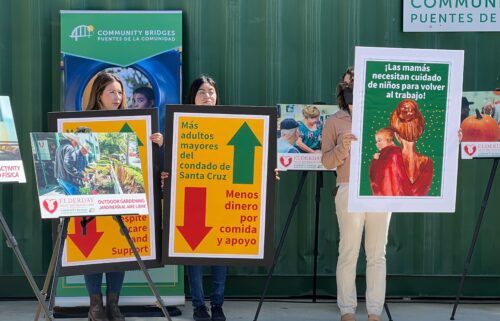This teacher was tortured by the Russians and held for six months before returning to her town in Ukraine in a prisoner swap
By Clarissa Ward, Brent Swails, Tim Lister and Scott McWhinnie, CNN
The letter had just three words: mama, alive, healthy. But Olena Yuzvak had no doubt that it was from her son, Dima. The 23-year-old biotech graduate was taken by Russian forces from their front yard in the Kyiv suburb of Hostomel along with Olena and her husband, Oleh, on March 20.
Olena, a doctor, was released the next day. Dima and Oleh, a former police colonel, were taken to a filtration camp in Russia. Oleh was returned to Ukraine in a prisoner swap on April 18, but Dima has been gone for seven months.
“The last time my husband saw my son alive was in a filtration center on March 23rd,” she said. “I demand Russia to release my civilian son who has a civilian occupation. I am ready to go to the end of the earth to get him. I am ready to take my son and all the other prisoners.”
According to human rights groups, hundreds of Ukrainian civilians have been imprisoned unlawfully in Russia. The lucky ones are used as bargaining chips in prisoner swaps. On Monday, 108 women, including 12 civilians, were released from captivity in Russia as part of one such swap.
Some of these Ukrainian women have alleged brutal mistreatment by their captors — including torture by electric shock and scalding. The Ukrainian state news agency Ukrinform interviewed one of them — naming her only as Hanna O. She is 26, Ukrinform says, and had served in the 36th Marine Brigade.
Hanna O. had been in the Azovstal steel plant in Mariupol but left when the Russians began bombarding it. She said she had spent just over six months in captivity. “They treated us like animals,” she told Ukrinform.
“They’d beaten the girls, they tortured the girls with electric currents, beaten them with hammers, that’s the lightest thing. They’ve hung them up.
“Those who had tattoos… they wanted to cut off our hands, cut off the tattoos, scalded us with boiling water just because you are there, because you are with the marines, because you speak Ukrainian,” she said.
International law is clear that civilians should be treated as protected persons and cannot be held as prisoners of war. The act of forcibly transferring Ukrainian civilians to another country is a war crime.
According to a Human Rights Watch Report in July, “International humanitarian law also prohibits hostage-taking. Detaining civilians for the purpose of using them in future prisoner exchanges would constitute the war crime of hostage-taking.”
Katerina Andryusha is one of the lucky mothers. Her daughter, Victoria, was taken from their home in the village of Stari Bykov, on March 25 by Russian forces, after they found text messages on her phone about Russian movements in the area. According to Victoria, she was held in the basement of a local house overnight and then moved to Russia the next day.
A CNN team met Katerina a week after Victoria had been taken. She stood outside her house, dazed and fighting back tears, as she showed photographs of her math teacher daughter.
“We hope that she will get in touch, with somebody, somewhere,” she said.
Victoria says that the Russian troops accused her of engaging in espionage and that she was beaten during an early interrogation at a Russian filtration camp.
“I was given electric shocks. They used sticks and their hands and legs. Really, this was physical abuse. They were beating me. Psychologically, I prepared myself for this possibility. And this could happen in any moment,” she said. “There was the terror of uncertainty and the Russians were telling us that we can do what we want with you.”
From the filtration camp, Victoria was taken to Kursk prison where she languished for six months. For Katerina, back in Ukraine. the agony was worse, not knowing what condition her daughter was in and when she might get home. She lobbied every organization she could, to try to raise awareness about Victoria’s situation.
Then, last month, Victoria was released as part of a prisoner swap along with another female civilian. Video, released by the Ukrainian government, shows her sobbing with disbelief as she reaches Ukrainian territory.
“It’s over. Don’t cry. You’re home,” the other woman released with her comforts her.
Sitting on the sofa together now, happily reunited, the mother and daughter hold hands and hug frequently throughout our interview. When Victoria mentions the abuse she endured, tears stream from Katerina’s eyes.
“Don’t you dare cry,” Victoria says, fighting back tears of her own, “Everything is fine, everything is good, I’m here now.”
But for so many others, the nightmare continues.
The-CNN-Wire
™ & © 2022 Cable News Network, Inc., a Warner Bros. Discovery Company. All rights reserved.


